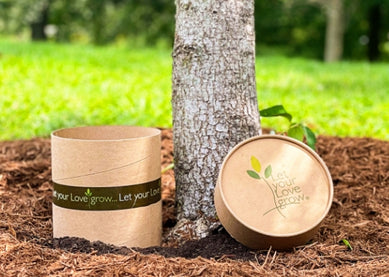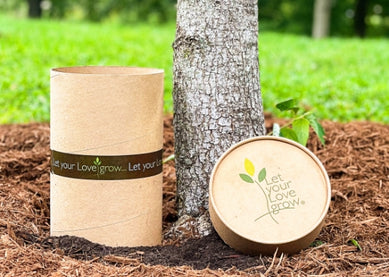Why Losing Your Dog Is So Painful
Losing a dog is an incredibly painful and difficult experience. We all know dogs live short lives, but it’s still almost impossible to prepare for their passing.
Why does losing your dog hurt so much? Here are five reasons why the death of your canine companion is so painful.
1. Losing Your Dog is a Traumatic Experience
As many dog owners would attest, losing a beloved pet can be just as traumatic as the death of a friend or relative. Our dogs provide us with companionship, unconditional love, and emotional support, so it’s not surprising that we feel intense grief after they pass away.
After all, many dogs live for a decade or longer. That’s a long time to build a deep bond of mutual trust and love. While a dog’s behavior might frustrate us sometimes, there’s never any doubt about their kindness and love.
There’s also the added trauma of euthanasia. If you’ve had to make the upsetting decision to euthanize your pet, it can be difficult to remember that it was an act of love and kindness.
2. Dogs Don’t Judge Us
A wonderful thing about having a canine companion is that they provide emotional support and love, without any of the negative traits that can interfere with human relationships.
Dogs don’t lie or have ulterior motives. They don’t judge us for our opinions, beliefs, or habits, and they are always forgiving. These are all traits we look for in human friends, but dogs provide them throughout their lives – and they only ask for your love in return.
When you lose your dog, it’s natural to struggle with the loss of their emotional support and non-judgmental love.
3. Not Everyone Understands Your Pain
Most pet owners can empathize with the intense grief you’re experiencing. But other people, especially those who haven’t experienced a deep bond with a dog, may not fully understand.
It’s common to hear phrases like “can’t you just get another pet?” or “it’s just a dog.” Aside from being very insensitive, these types of comments can make it feel like you’re alone with your grief.
It’s important not to allow other people’s opinions to affect how you feel. Grieving a pet can take a long time, and it’s not something that you should rush or try to ignore.
4. You’ve Lost Someone to Care For
Giving your love and care to a dog isn’t just for your pet’s benefit. Providing care for an animal can be immensely rewarding and satisfying, as it’s known to release “feel good” hormones in the brain.
As dogs get older, owners spend more time caring for them, often due to health conditions such as arthritis or canine cognitive dysfunction. A senior dog may also want to spend more time with their owner, as they feel less secure and more anxious.
When the dog passes away, the sudden lack of someone to care for can leave a hole that’s hard to fill. This can be even more difficult if you’ve recently spent lots of time caring for a senior or unwell dog.
Losing a dog can also disrupt your daily routine. Waking up to greet your dog, taking them for walks, feeding them, and snuggling up in the evening all build a sense of consistency. It’s natural to feel a lack of purpose after they pass away – especially if you live alone.
5. Grief Is Different for Everyone
One of the hardest things about grieving a pet is that there’s no way to predict how long it’ll last. While you’ll always miss your dog, the period of intense grief varies a lot depending on your personality, how your dog passed away, their age, whether you live alone, and many other factors.
Additionally, many people feel guilty during times when they aren’t feeling grief. However, it’s natural for grief to vary throughout the day, so you should try to enjoy the easier times rather than feeling guilty about them.
There’s also no right or wrong way to deal with grief. For example, many people don’t want to adopt another dog for a long time, as they feel guilty about “replacing” their previous pet. While you shouldn’t get another pet before you’re ready, or rush into getting a dog to try and reduce your pain, you also shouldn’t feel that you need to wait a set period of time.
Tips for Coping With The Grief of Losing a Dog
The most important thing is not to deny yourself the chance to grieve. Everyone grieves differently, so it’s vital to give yourself permission to grieve for as long as necessary.
Here are some other tips for coping with the loss of a dog:
- Consider attending a pet loss support group. Talking to people who understand how you are feeling can make the grief easier to deal with.
- Try not to feel guilty about how much you’re grieving. It’s normal to feel less grief at times, and this doesn’t mean you don’t love or miss your pet.
- Understand that grief isn’t predictable. There are five stages of grief – denial, anger, bargaining, depression and acceptance – but these don’t necessarily happen in this order.
- There are many ways to honor the memory of your dog. For example, some people find that it helps to make a memorial in the garden, or plant a tree in their memory. Framing pictures of happy memories with your dog or getting an engraved stone can also be a good way to create a memorial. If your dog was an ESA, you might consider creating a tribute that reflects the special emotional bond you shared.
Summary
If you’ve recently lost a dog, then it’s important to understand that it’s normal to feel intense grief and sadness. While some people may not understand your grief, that doesn’t make it any less real.
Dogs provide us with love, support, and trust. They never judge us and forgive our flaws. Caring for them also provides a sense of purpose and satisfaction, while helping us to develop a consistent routine.
For all of these reasons, losing your pet can be a traumatic experience. Make sure you give yourself permission to grieve and avoid rushing the process.










